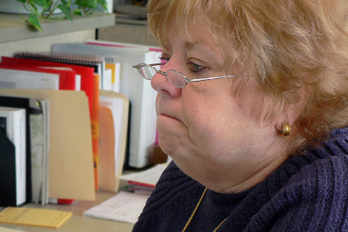
Around the turn of the twentieth century, the clear soprano voice of performer and porcelain-skinned American beauty Lillian Russell graced New York City stages. Her musical talents gained her fame, and the New York Times boasted the recipes for her “strawberry-and-cream complexion.” This beauty literally bulged from diamond-studded corsets—she was nearly 200 pounds at the height of her career. Today, a woman her size faces an entirely different audience, at least economically.
Over two-thirds of the US population is overweight or obese. The odds a non-Hispanic white woman is obese are 1 in 4.37. Yet, to easily find a prominent example of a large, middle-aged, white woman raking in the cash, we have to reach back to 1902. Today, extra weight, for white women in particular, translates into confidence-sapping stigma and lower salaries.
Extra weight for women is essentially a disguised tax, according to a recent study out of Cornell University. The author, John H. Cawley, associate professor of human ecology, reports that a weight increase of 64 pounds above the average for white women was associated with 9 percent lower wages.
Heavier people, male or female, face higher costs of living already. Obese people don’t spend more on food, but tend to have higher rates of diabetes and heart disease, and so healthcare costs are higher for them. The National Bureau of Economic Research estimates that annual medical expenditures are $732 higher for obese individuals than for those of normal weight.
But why are white women’s salaries so particularly gouged? That may be where discrimination and cultural bias comes in, suggests a 2009 study in the journal Obesity. Several decades of research shows a 66 percent increase in the prevalence of weight discrimination in the US, especially among women. And women were 16 times more likely to report weight-related employment discrimination than men.
The Western-world attitude that fat equals lazy, unmotivated, and noncompliant has, for some reason, grown unchecked. The idea that overweight people are to blame for their weight also thrives. This weight prejudice seems to enable a cruel economic calculation: As obesity rates soar, thinness rates have dwindled, and a worker’s weight influences their value.
Many researchers are convinced that weight stigma is just as, or more virulent than racial bias. To test just how deeply prejudices of all forms are ingrained within us, researchers from Harvard, University of Virginia, and the University of Washington created The Implicit Association Test. Click on the weight test.
It’s still a bit of a research quagmire figuring out if extra weight leads to lower wages, or if lower wages and discrimination leads to obesity, but the end result remains one that bodes poorly for many white women, likely those middle-aged mothers choosing to reenter the job market.
As “American Beauty” Lillian Russell’s career in performing wound down, her crusade for women’s suffrage took off. She wrote a column in the Chicago Record-Herald, participated in fundraising banquets, and gave women’s rights speeches. Prejudice against women was nothing new to her. But the idea that, in 2010, a woman’s weight could hold her back would probably both surprise and sadden her.